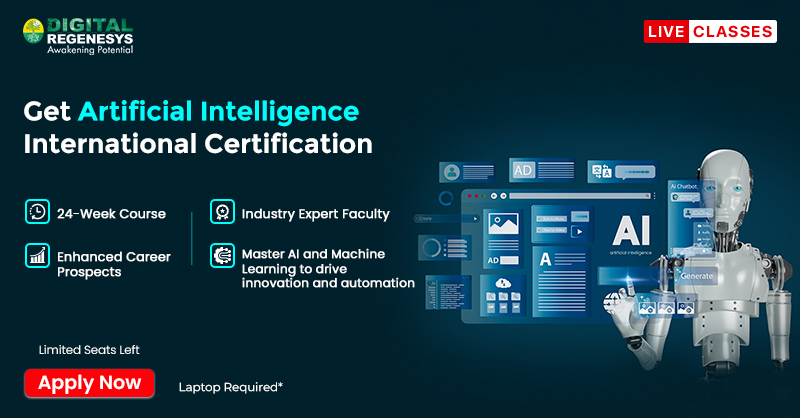AI & Machine Learning for Cloud Professionals

Artificial Intelligence (AI) and Machine Learning (ML) are no longer just buzzwords in the tech industry – they have become essential tools for driving efficiency, scalability, and innovation in cloud computing. For cloud professionals, understanding AI and ML is no longer optional but a crucial part of staying relevant in today’s digital landscape. From automating tasks to predicting demand and detecting security threats, these technologies are reshaping how cloud platforms are managed and optimised.
In this article, we will explore the role of AI and Machine Learning for cloud professionals, the skills required, applications, tools, challenges, and career opportunities in this evolving field.
What Is AI and Machine Learning in the Context of Cloud?
To start with, let’s clear the confusion. AI refers to systems that can mimic human intelligence, while Machine Learning is a subset of AI that allows systems to learn and improve from data without being explicitly programmed. When combined with cloud computing, these technologies open up powerful possibilities.
Cloud environments are designed to handle massive amounts of data, provide flexible storage, and offer scalable computing power. By integrating AI and ML into the cloud, businesses can build predictive models, automate resource allocation, and offer smarter services without needing heavy on-premise infrastructure.
Here are some simple ways to think of AI and ML in the cloud:
- AI in Cloud Computing – AI helps analyse patterns, provide recommendations, and automate decision-making within cloud platforms.
- Machine Learning in Cloud – ML models use data stored in the cloud to learn and continuously improve processes, such as demand forecasting or fraud detection.

Why Cloud Professionals Should Care?
Many cloud professionals often wonder: “Why should I focus on AI and ML when I already specialise in cloud platforms?” The truth is that AI and ML are no longer separate from cloud – they are part of the same ecosystem.
By understanding these technologies, cloud professionals can position themselves as more versatile experts, ready to take on roles that combine cloud management with intelligent automation.
The following reasons show why cloud professionals must embrace AI and ML:
- Growing Industry Demand – Businesses increasingly expect cloud professionals to manage AI-powered solutions, making this a career-critical skill.
- Career Advancement – AI and ML knowledge adds weight to your profile, opening doors to senior roles and higher pay.
- Real Business Impact – Professionals who understand AI can help organisations reduce costs, improve security, and deliver smarter solutions.
Find out What Are the Benefits of Cloud Computing for Businesses and Individuals? Know Here
Key Applications of AI & ML in Cloud
The combination of AI, ML, and cloud computing is used across industries – from banking and healthcare to e-commerce and IT. For cloud professionals, knowing these applications is essential because they show where demand is growing.
Here are the key areas where AI and ML are applied in cloud environments:
- Automation & Optimisation – Cloud systems powered by AI can automatically scale up or down depending on demand. This ensures businesses pay only for what they use and enjoy smooth system performance.
- Security & Threat Detection – AI-driven security systems in the cloud can identify unusual activity, detect fraud, and respond to threats faster than traditional methods.
- Data Analytics & Insights – Cloud platforms host massive amounts of data. ML helps turn this raw data into actionable insights – such as predicting customer behaviour or identifying trends.
- AI-as-a-Service (AIaaS) – Leading providers like AWS, Azure, and Google Cloud now offer built-in AI and ML tools. These allow professionals to quickly deploy models without building them from scratch.
Skills Cloud Professionals Need
For professionals aiming to combine cloud expertise with AI and ML, certain skills stand out. These skills bridge the gap between managing infrastructure and applying intelligent technologies.
The following are the most important skills to focus on:
- Programming Knowledge – Learning languages like Python or R helps in building and deploying ML models. Python, in particular, is widely used for its simplicity and large library support.
- Familiarity with ML Frameworks – Tools such as TensorFlow, PyTorch, and Scikit-learn allow professionals to develop, train, and test machine learning models.
- Data Handling Expertise – Cloud professionals must understand how to manage and preprocess large datasets for AI applications.
- MLOps and Deployment- Skills in deploying models at scale using cloud services, Kubernetes, or CI/CD pipelines are highly valued.
Tools and Platforms to Explore
Cloud providers have recognised the demand for AI and ML integration and now offer platforms that make it easier to adopt these technologies. For cloud professionals, becoming familiar with these tools is a big career advantage.
Here are some of the most widely used platforms and tools:
- AWS SageMaker – Amazon’s platform for building, training, and deploying ML models directly on the cloud.
- Azure Machine Learning – Microsoft’s service that allows developers and data scientists to manage the entire ML lifecycle.
- Google Vertex AI – A unified platform by Google that supports large-scale ML and AI model management.
- Open-Source Frameworks – Tools like TensorFlow, PyTorch, and Keras are commonly integrated into cloud solutions.
Read on Understand What Is Data Security in Cloud Computing here!
Career Opportunities and Growth
The merging of cloud and AI is creating a variety of new career roles. Professionals with expertise in both areas are among the most sought-after in the IT sector.
Here are some career paths cloud professionals can explore with AI and ML skills:
- Cloud AI Engineer – Focuses on building AI-driven solutions directly on cloud platforms.
- Data Scientist in Cloud Environments – Works with big data and ML models hosted on cloud systems.
- MLOps Engineer – Specialises in deploying and maintaining machine learning models on the cloud.
- AI Solutions Architect – Designs AI-powered architectures that leverage cloud services.
These roles are not only in demand but also command competitive salaries, reflecting the high value placed on professionals with hybrid expertise.
Challenges and Considerations
Despite the advantages, cloud professionals must also be aware of challenges when working with AI and ML. These challenges can affect project success if not addressed properly.
Some of the common issues include:
- Data Privacy and Compliance – Handling sensitive data in the cloud requires strict adherence to data protection laws.
- Cost Management – AI and ML workloads can be resource-heavy, leading to high cloud costs if not optimised.
- Skill Gap – Many professionals lack sufficient training in AI and ML, creating a need for continuous upskilling.
Also, read on What are the Security Risks of Cloud Computing? Learn Components, Importance, and Impact Here!
Conclusion
AI and Machine Learning are no longer separate from cloud computing—they are deeply integrated, shaping the future of technology and career opportunities. For cloud professionals, gaining expertise in AI and ML is the key to staying competitive and delivering greater value to organisations.
At Digital Regenesys, we recognise the growing need for experts who can combine cloud computing, DevOps, and AI/ML skills. That’s why our Cloud Computing and DevOps Course with AI/ML is designed to equip you with practical, industry-relevant knowledge.
If you want to future-proof your career and thrive in the fast-evolving world of AI-driven cloud solutions, now is the time to enrol with Digital Regenesys.
Last Updated: 30 October 2025
